Affiliate links on Android Authority may earn us a commission. Learn more.
Android Wear vs Apple Watch – Quick Look
Published onMarch 9, 2015
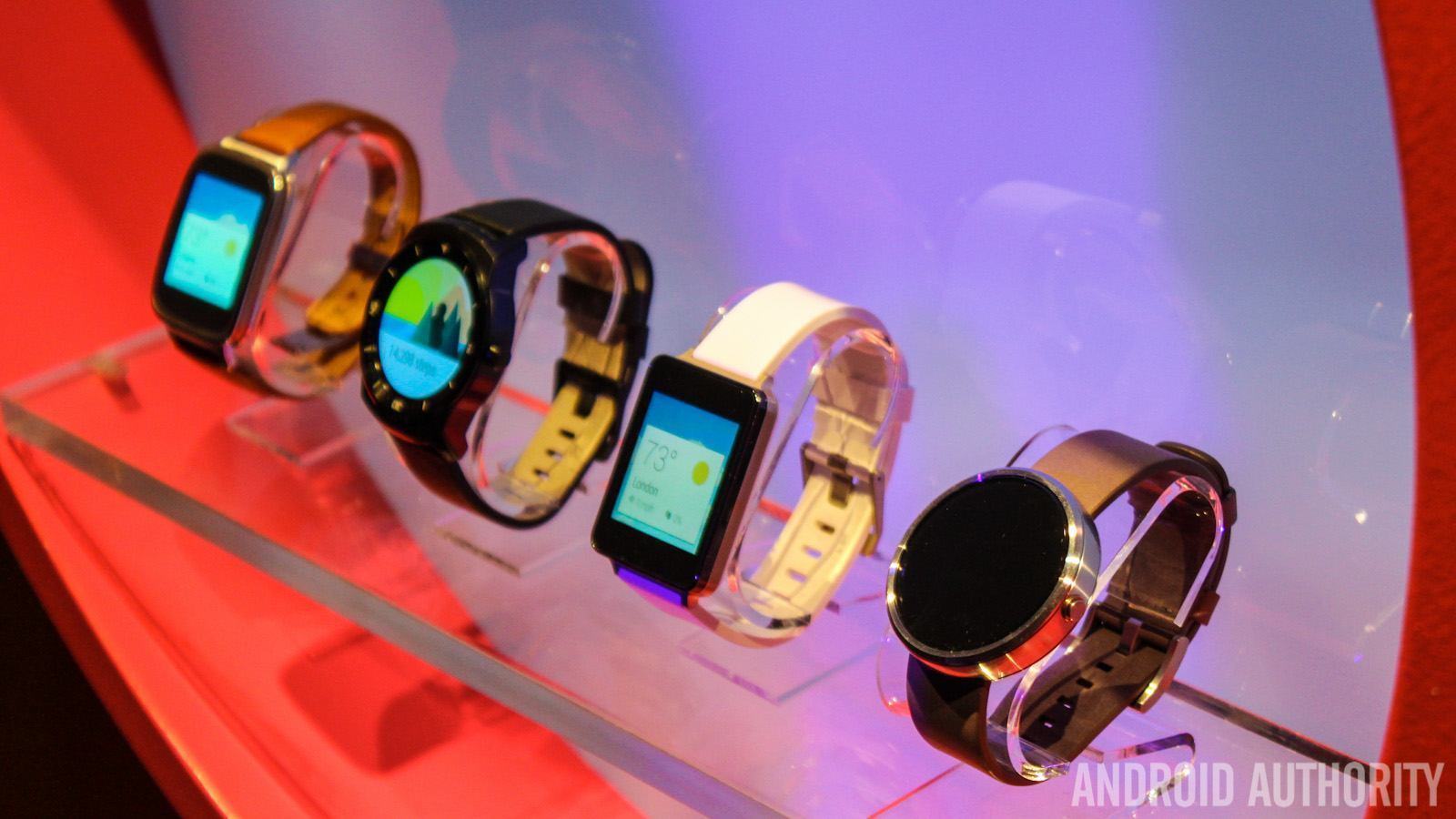
Apple has just announced the final details of its first entry into the smartwatch market, so let’s take a look at how the Apple Watch stacks up against the best that Android Wear has to offer.
Both platforms work as a companion to their smartphone counterparts, with Apple Watch supporting iOS 8 smartphones and Android Wear covering Android 4.3 handsets and up.
Software
Starting with the software, both operating systems have been built around smartphone notifications and a selection of apps designed specifically for wearables. Android Wear arranges these into swappable cards while Apple’s OS arranges apps on a single home screen with full screen pop-up notification. However, rather than relying solely on touch to navigate your way around, Apple’s crown dial is also used to hop in and out of apps and alter some settings.
Apple made a big deal about personalization during the announcement, and both platforms offers up a wide selection of watch-faces to choose from. You can already find a huge range of watch faces made by third party developers for Android Wear.
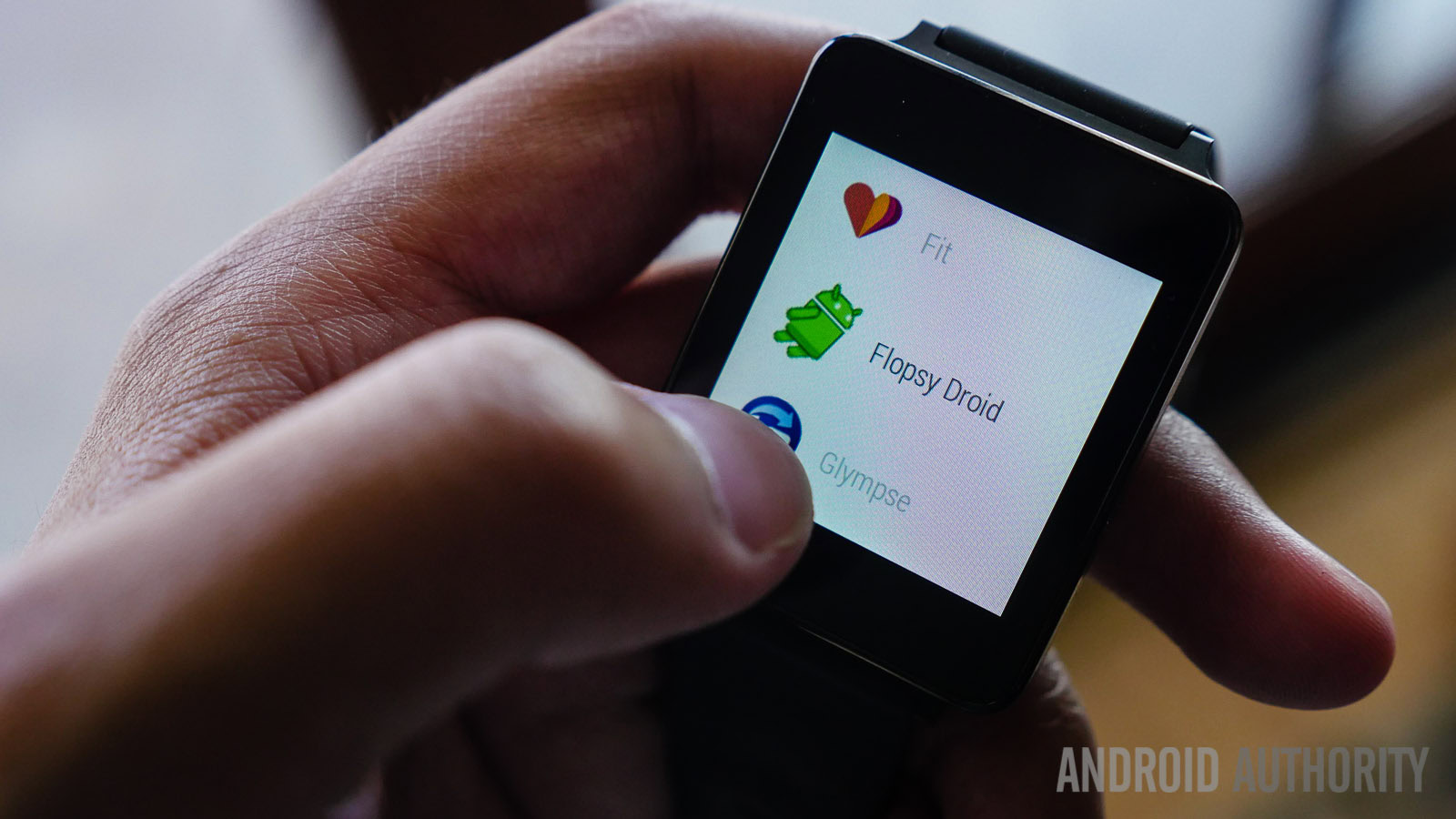
Core functionality also shares a lot of similarities on both platforms. Notifications pinged from your mobile appear in real-time, allowing for quick responses to messages, emails, calls, etc. Both platforms support common applications such as calendars, navigation, music control, weather checking, upcoming flight information and voice commands.
Speaking of which, Google Now plays a big part in Android Wear, while Siri assumes the voice responsibilities for Apple Watch. Google Now works for search, accessing apps, settings alarms, etc, and Siri allows for much of the same functionality, and can also be activated by voice command.

Apple Pay is one big feature currently unmatched by Android Wear devices, which will allow you to make small payments in some stores directly from your wrist. Although you have to hold the face of the watch against the contactless reader, which might involve some odd wrist twisting, depending on the reader.
Health and Fitness
The other half of the wearables battle is being fought for the health and fitness market, with both platforms again offering up a lot of similar functionality. Most Android Wear smarwatches come with a heartrate monitor and can link up with your smartphone to track location and distances through GPS and WiFi, and the Apple Watch is no different in this regard either. Both platforms sport similar app functionality too.
With Android Wear, there’s app support from Google Fit and a selection of third party apps that can all tap into the fitness hardware, most of which offer features like distance/step tracking and health monitoring. Apple’s Activity app can also keep track of your day to day activities, or lack of, in much the same way, while there’s a Workout app for those who want a more dedicated cardio workout.
Hardware
Apple has opted for two different sizes for its smartwatch, either 38mm or 42mm. Just like Android Wear, changeable watch straps are available to suit your preferred style, and Apple even has a selection of metals available to enclose the watch face, either stainless steel, aluminium, or 18k gold, if you so desire.
Of course, the wonderful thing about Android has always been its wider range of hardware. While Apple’s has a range of variations on the same design, Android Wear’s hardware has a selection of completely different looks available. The Moto 360 come with a choice of leather or metallic straps, while the G Watch R and Zenwatch offer a selection of leather options or Sony’s latest smartwatch can come encased in stainless steel.
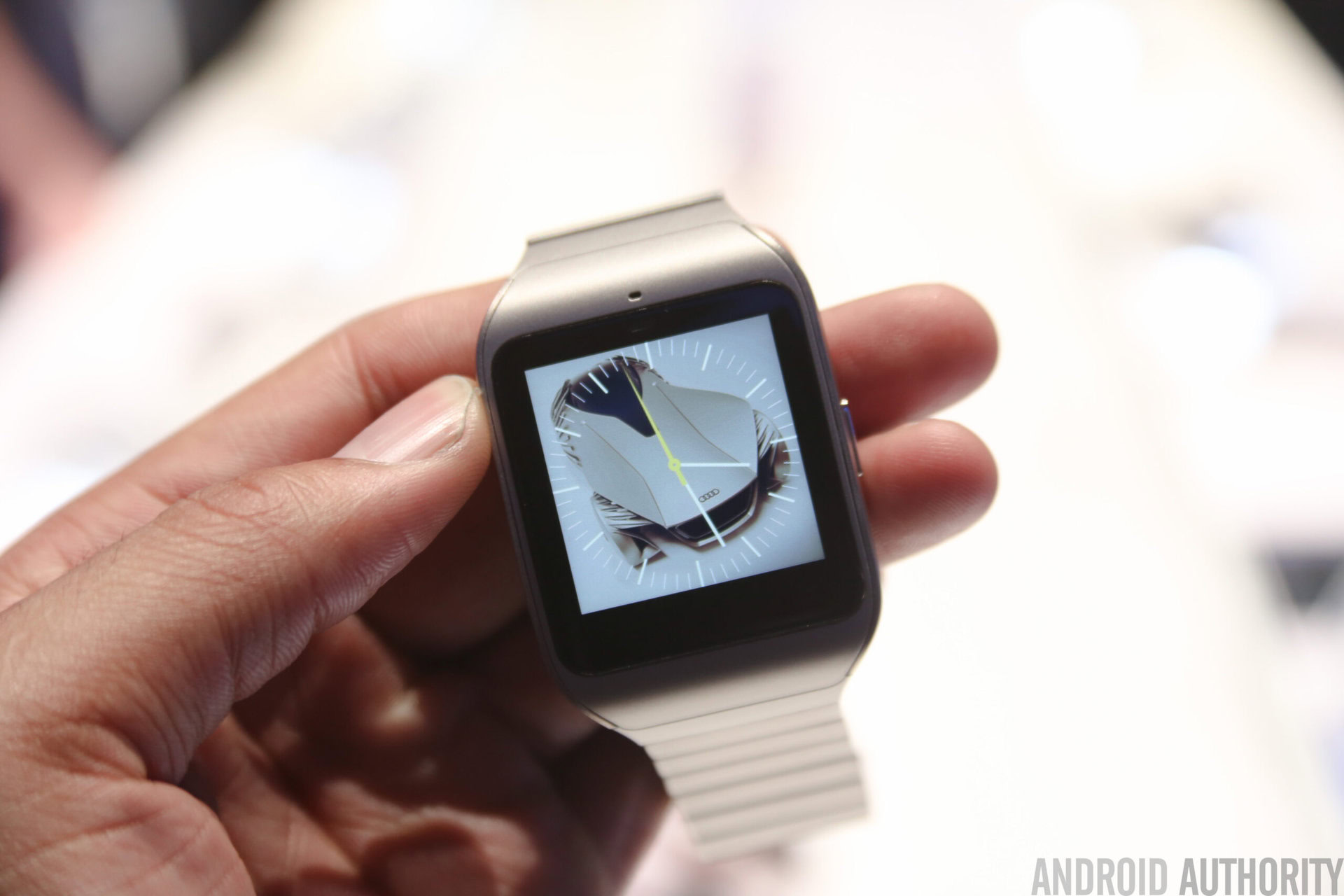
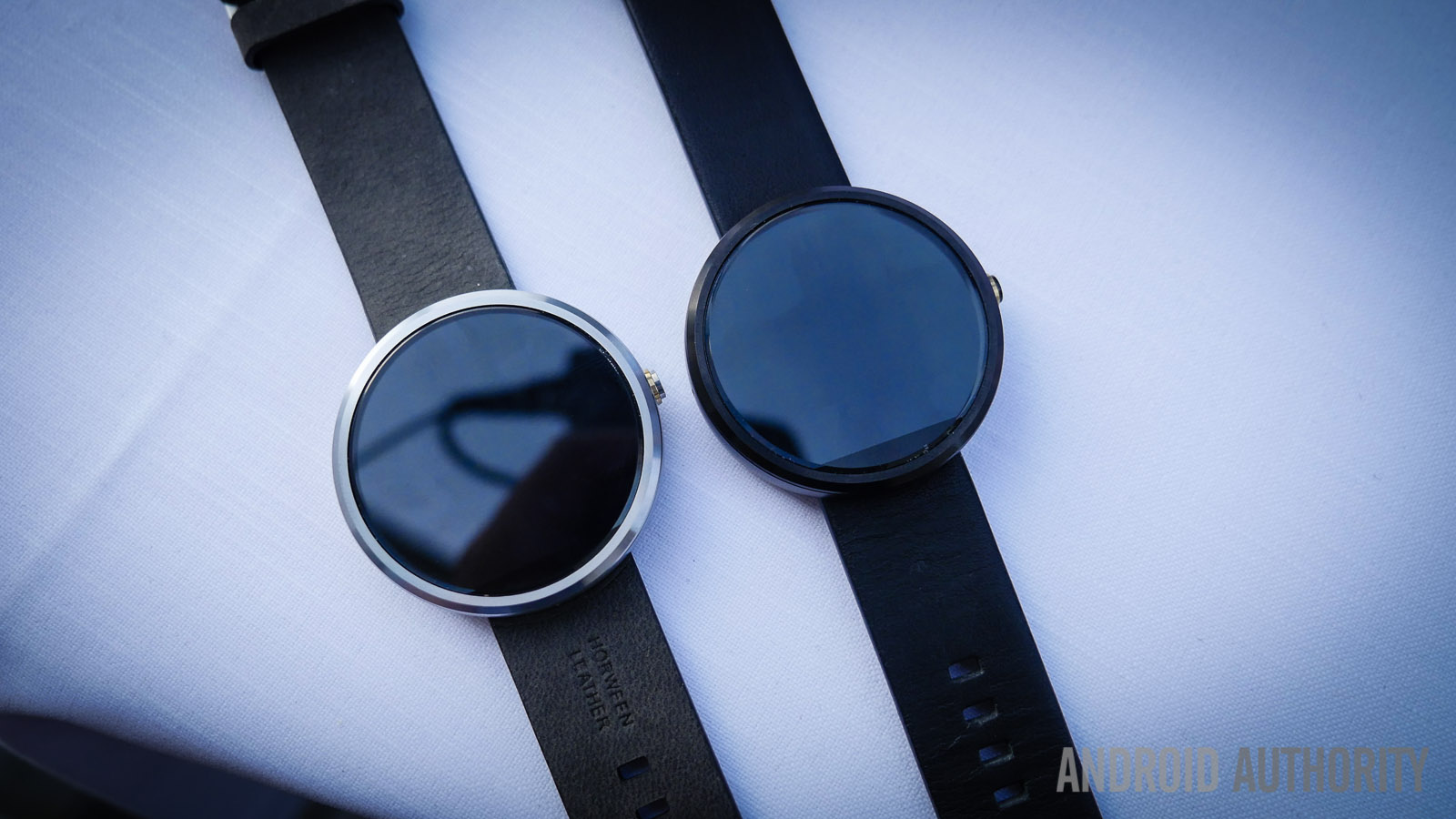
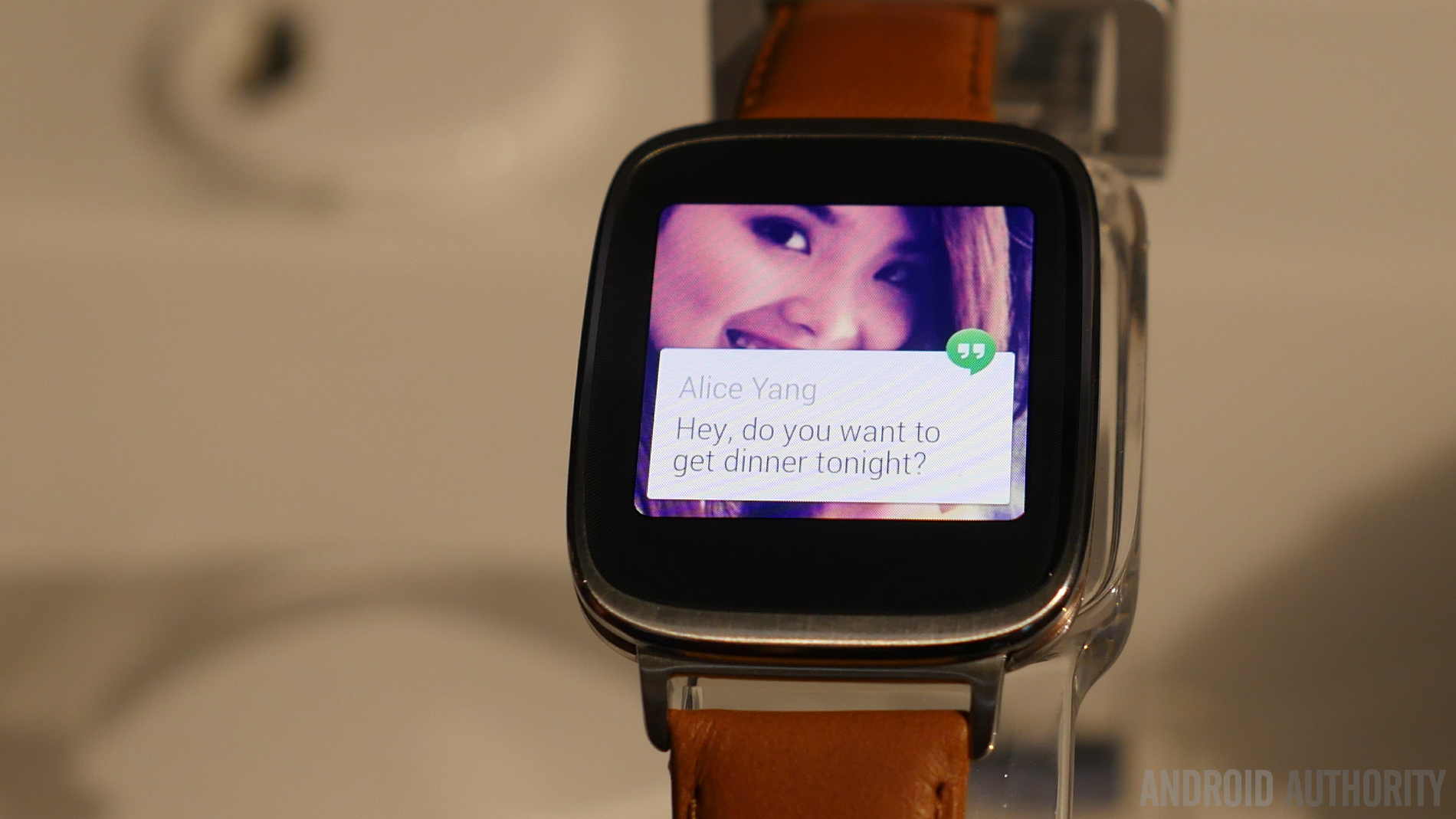
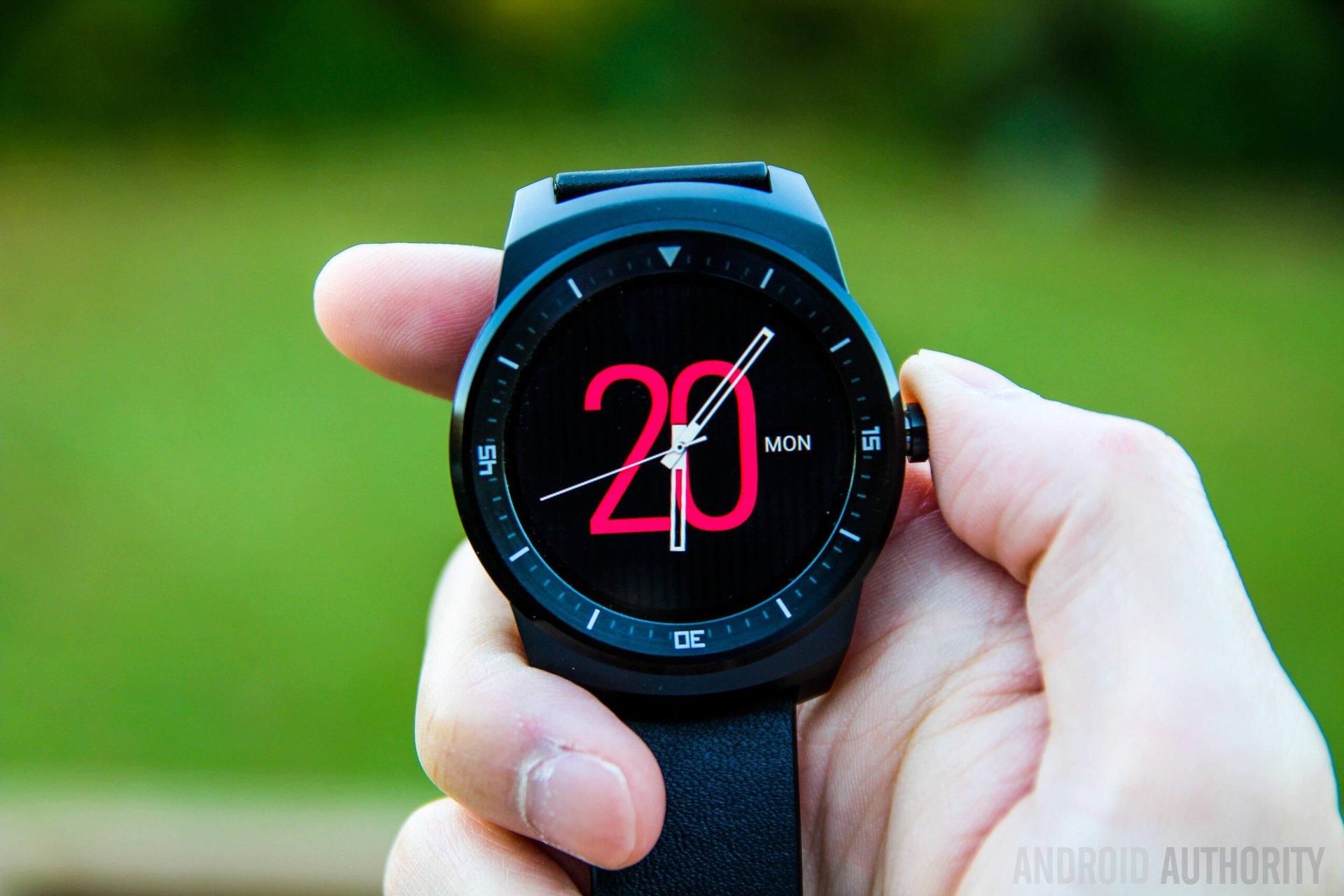
Although there are plenty of different designs to pick from with Android Wear, most of the latest generation smartwatches feature surprisingly similar specifications to each other. The table below gives an example of some of the best Android Wear products and how they compare with the key hardware features offered by Apple’s Watch.
| ASUS Zenwatch | LG G Watch R | Moto 360 | Apple Watch | |
|---|---|---|---|---|
Display | ASUS Zenwatch 1.63" 320x320 AMOLED | LG G Watch R 1.3" 320 x 320 P-OLED | Moto 360 1.56" 320x290 LCD | Apple Watch 340 x 272 or 390 x 312 |
SoC | ASUS Zenwatch 1.2 GHz Snapdragon 400 | LG G Watch R 1.2 GHz Snapdragon 400 | Moto 360 TI OMAP 3 | Apple Watch Apple S1 |
RAM | ASUS Zenwatch 512 MB | LG G Watch R 512 MB | Moto 360 512 MB | Apple Watch unknown |
Storage | ASUS Zenwatch 4 GB | LG G Watch R 4 GB | Moto 360 4GB | Apple Watch unknown |
Battery | ASUS Zenwatch 360 mAh (2 days) | LG G Watch R 410 mAh (2+ days) | Moto 360 320 mAh (12 hours) | Apple Watch unknown (18 hours) |
Size | ASUS Zenwatch 51 x 39.9 x 7.9 ~ 9.4 mm | LG G Watch R 46.4 x 53.6 x 9.7 mm | Moto 360 46mm diameter x 11.5mm | Apple Watch 42mm or 38mm (height) |
Weight | ASUS Zenwatch 50g | LG G Watch R 62g | Moto 360 49g | Apple Watch unknown |
Resistance | ASUS Zenwatch IP55 | LG G Watch R IP67 | Moto 360 IP67 | Apple Watch no |
Extras | ASUS Zenwatch pedometer, heart rate monitor | LG G Watch R pedometer, heart rate monitor | Moto 360 pedometer, heart rate monitor | Apple Watch pedometer, heart rate monitor, GPS |
Charging | ASUS Zenwatch Dock | LG G Watch R Dock | Moto 360 Wireless | Apple Watch MagSafe Wireless |
Price | ASUS Zenwatch $199.99 | LG G Watch R $299 | Moto 360 $250 | Apple Watch $349 or $399 |
The 38mm Apple Watch is the smallest of the watches on our list, while the 42mm wide version is much closer to what we have come to expect from rectangular Android Wear watches. Of course, circular designs, like the Moto 360 and G Watch R, are going to be a little wider, but fortunately don’t add much in terms of weight. However, the scanner on the bottom of the Apple Watch seems to make the smartwatch stick out of the wrist a bit further than most Android watches, although we don’t have the exact dimensions to verify its size.
One of the most important metrics for a wearable is battery life. Typically, our testing of Android Wear devices results in a maximum battery life of around two days, with the exception of the Moto 360 which seems substantially worse. During Apple’s announcement, the device was stated to last 18 hours during “typical” usage, meaning that daily charging will be required and the watch may not last long at all under heavy usage.
The Apple Watch also supports wireless charging via a MagSafe induction connection. The Moto 360 uses Qi wireless charging, while most Android Wear products are charged through a physical connection to a docking station.
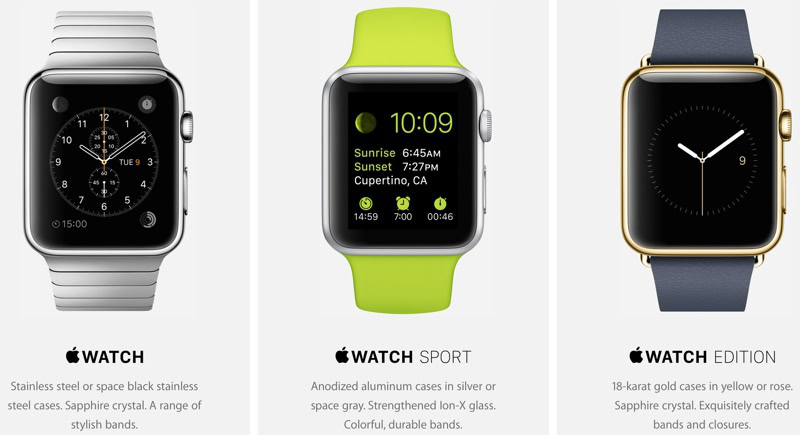
On its début into the smartwatch market, Apple has also launched sport and collector’s edition variants. Neither of these two add anything in terms of internal hardware, but the sport version’s aluminium, rather than stainless steel, cover should reduce its weight somewhat. Prices for the Watch Edition range between $549 and $1049, depending on the strap and build materials. If you have money to burn, there’s also a 18-karat or rose gold option available starting from $10,000.
There you have it, a quick look at some of the hardware and software features available with Android Wear and Apple Watch. There are a lot of similarities between the two, which likes leaves aesthetic design and smartphone support as the major deciding factors between the two.